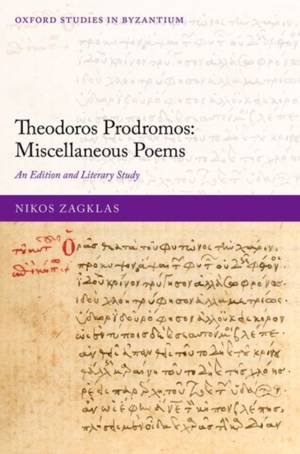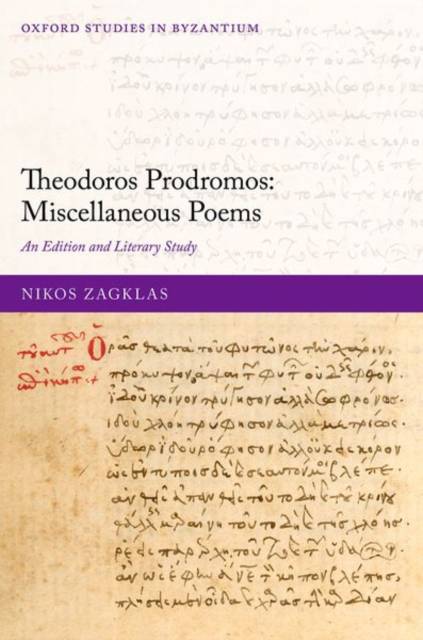
- Afhalen na 1 uur in een winkel met voorraad
- Gratis thuislevering in België vanaf € 30
- Ruim aanbod met 7 miljoen producten
- Afhalen na 1 uur in een winkel met voorraad
- Gratis thuislevering in België vanaf € 30
- Ruim aanbod met 7 miljoen producten
Zoeken
€ 139,95
+ 279 punten
Omschrijving
In twelfth-century Byzantium, poetry played a key part in various contexts of textual production and consumption. One of the leading poets of this period was Theodoros Prodromos, whose surviving corpus comprises approximately 17,000 verses. Even though most of his poetry has been presented in modern critical editions, a group of his works has been overlooked by modern philologists and literary scholars alike. The selected corpus--conventionally designated as Miscellaneous Poems--consists of texts on various themes and in a wide range of genres, ranging from cycles of religious and secular epigrams to riddles, ethopoiiai, and works of a self-referential and essayistic nature. This book includes the first critical edition and study of these poems, accompanied by English translations and commentaries. Their study contributes to a more nuanced picture of Prodromos' intellectual profile, expanding his image as the 'poet laureate' of the Komnenian court and providing entirely new insights into his activity in the different settings of Constantinopolitan intellectual life. The book also sheds new light on the complex relationship between patronage and other aspects of literary activity and the circulation of the same text in different performative contexts.
Specificaties
Betrokkenen
- Auteur(s):
- Uitgeverij:
Inhoud
- Aantal bladzijden:
- 416
- Taal:
- Engels
- Reeks:
Eigenschappen
- Productcode (EAN):
- 9780192886927
- Verschijningsdatum:
- 25/08/2023
- Uitvoering:
- Hardcover
- Formaat:
- Genaaid
- Afmetingen:
- 163 mm x 241 mm
- Gewicht:
- 861 g

Alleen bij Standaard Boekhandel
+ 279 punten op je klantenkaart van Standaard Boekhandel
Beoordelingen
We publiceren alleen reviews die voldoen aan de voorwaarden voor reviews. Bekijk onze voorwaarden voor reviews.











